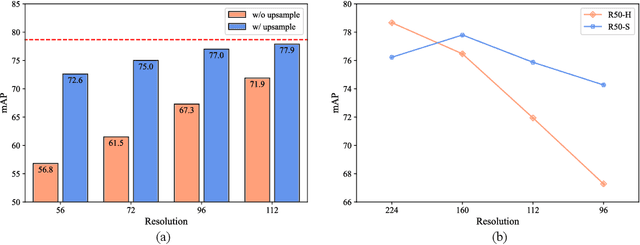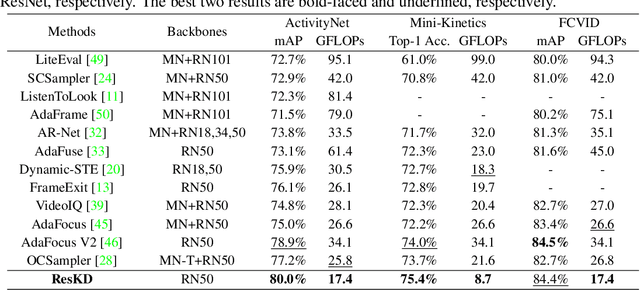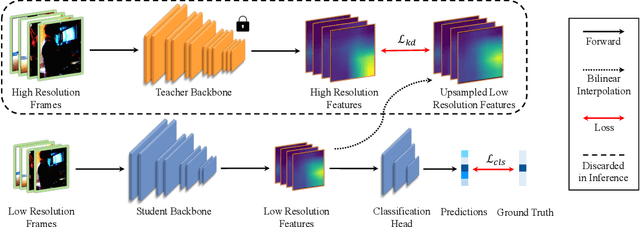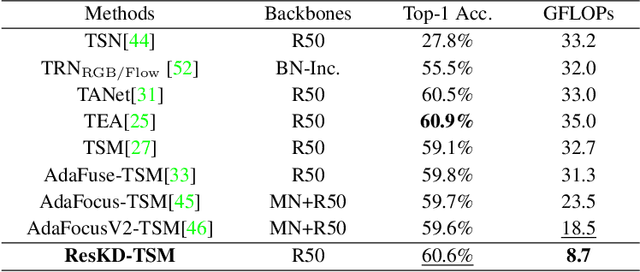Rethinking Resolution in the Context of Efficient Video Recognition
Paper and Code
Sep 26, 2022



In this paper, we empirically study how to make the most of low-resolution frames for efficient video recognition. Existing methods mainly focus on developing compact networks or alleviating temporal redundancy of video inputs to increase efficiency, whereas compressing frame resolution has rarely been considered a promising solution. A major concern is the poor recognition accuracy on low-resolution frames. We thus start by analyzing the underlying causes of performance degradation on low-resolution frames. Our key finding is that the major cause of degradation is not information loss in the down-sampling process, but rather the mismatch between network architecture and input scale. Motivated by the success of knowledge distillation (KD), we propose to bridge the gap between network and input size via cross-resolution KD (ResKD). Our work shows that ResKD is a simple but effective method to boost recognition accuracy on low-resolution frames. Without bells and whistles, ResKD considerably surpasses all competitive methods in terms of efficiency and accuracy on four large-scale benchmark datasets, i.e., ActivityNet, FCVID, Mini-Kinetics, Something-Something V2. In addition, we extensively demonstrate its effectiveness over state-of-the-art architectures, i.e., 3D-CNNs and Video Transformers, and scalability towards super low-resolution frames. The results suggest ResKD can serve as a general inference acceleration method for state-of-the-art video recognition. Our code will be available at https://github.com/CVMI-Lab/ResKD.
 Add to Chrome
Add to Chrome Add to Firefox
Add to Firefox Add to Edge
Add to Edge